Coronavirus Australia: Some retailers likely to close all stores, go purely online
Expect major changes in your local shopping centre as the coronavirus pandemic inspires a “seismic shift” in our retail habits.
Some retailers that have closed their doors during the pandemic “may never reopen” with a coronavirus-induced “seismic shift” in shopping habits leading customers to abandon physical stores in favour of online ordering.
Music and gaming stores, even some home appliance retailers, could vanish from shopping centres and strips after a massive surge in online shopping, skyrocketing from less than 10 per cent of sales to more than 30 per cent in just a few weeks.
Even those that retain physical shops are looking to shrink their store networks with COVID-19 providing the nudge many Australians needed to finally shop from home.
“A lot of retailers are probably taking a hard look at their store networks right now and considering whether they can survive without some of their physical stores in the future,” Jo-Anne Hui-Miller, editor of industry publication Inside Retail, said.
RELATED: Follow the latest coronavirus updates
RELATED: When will lockdowns end in my state?
A shopping centre staple warned this week it was considering closing branches after it said it doubted all the customers that fled malls and main streets in the face of COVID-19 could be coaxed back.
Daniel Agostinelli, chief executive officer of footwear retailer Accent Group which includes the Athlete’s Foot, Platypus and Hype DC brands, said the firm could close between 50 and 100 of its 500 stores, perhaps more.
“The only word we can find for this shift is seismic and we’re concerned it could have a prolonged effect on how customers shop. That will have an impact on how many stores the business will require,” he told news.com.au.
Accent Group said online sales had risen fourfold between March and April and now accounted for 45 per cent, or $1.1 million, of daily revenue. It’s likely that figure will fall back as restrictions eased but Mr Agostinelli said he expected as much as 30 per cent of sales to now be online.
“Once we come out of COVID, we will review every single store and where we can’t come to an agreement with landlords, we will have no choice but to exit that store.”
He said lease agreements that led to annual increases in excess of store sales growth were “not sustainable” – particularly if customers continued to embrace shopping from home.
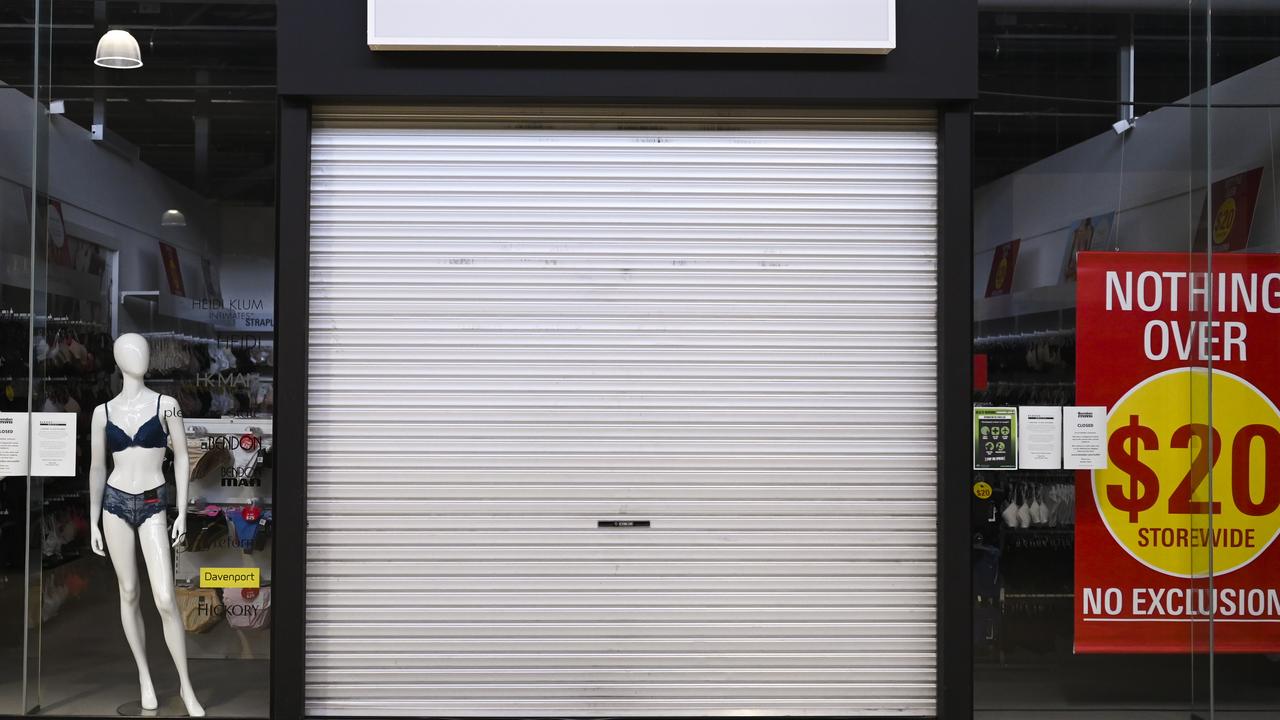
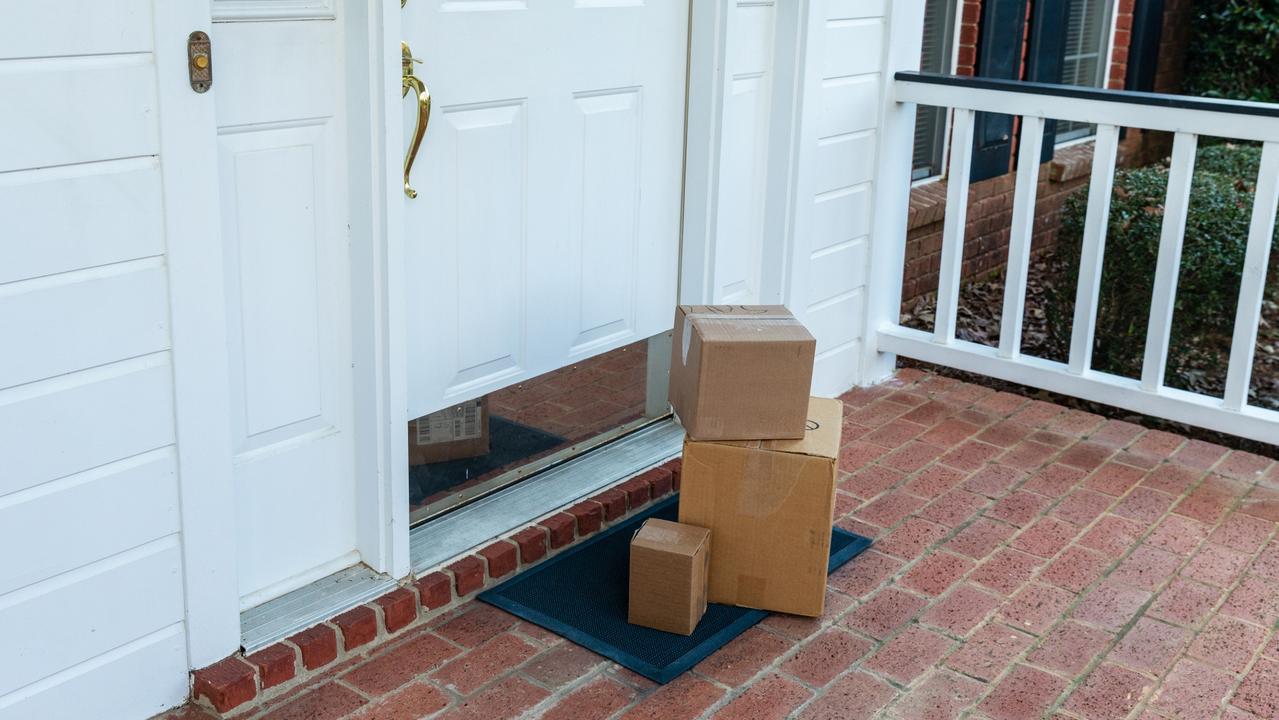
According to the Australia Bureau of Statistics, in February this year 7 per cent of retail sales were online. In the US that’s 12 per cent and in the UK almost one in five purchases are made online.
Some retailers have already made the decision to become purely internet players. In January, before coronavirus hit, high-end speaker brand Bose said it would close all its Australian stores.
Last week, Radio Rentals said its 62 physical stores – which had temporarily closed due to COVID-19 restrictions – would never reopen with the loss of 300 jobs. Radio Rentals will still trade online.
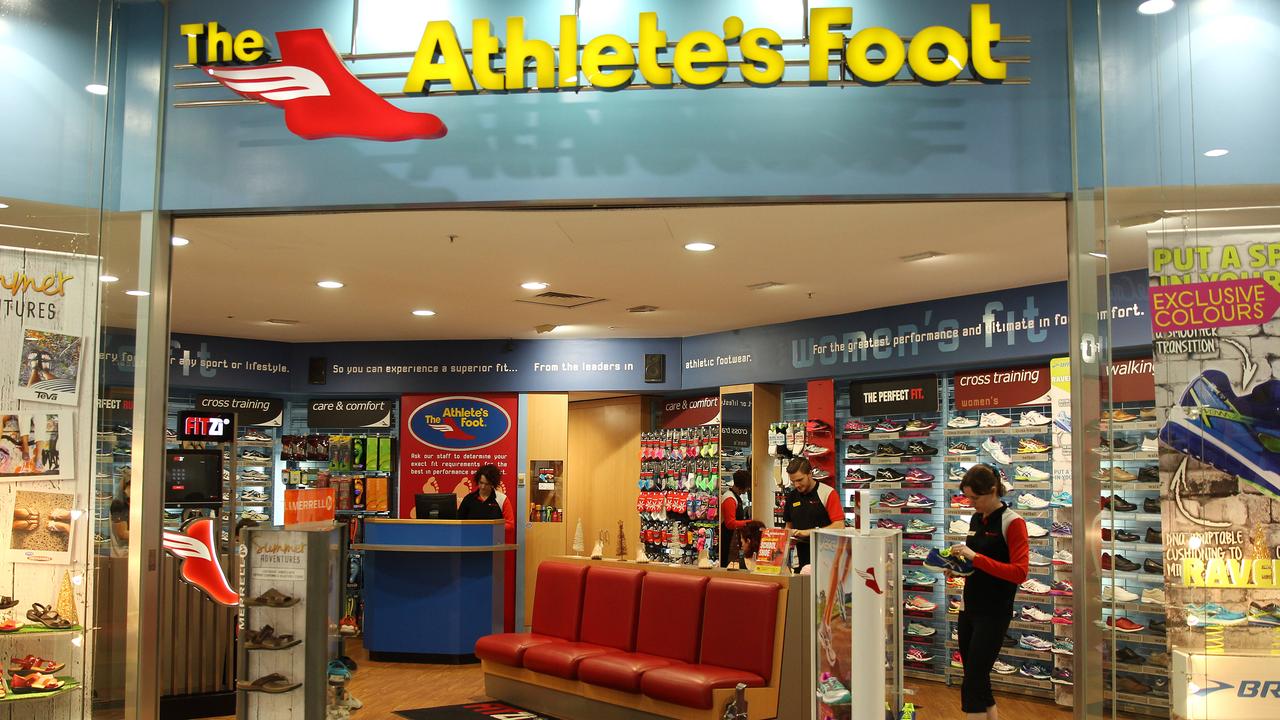
“This COVID event has strongly encouraged retailers who were already toying with the idea of online to move in this space pretty quickly,” Queensland University of Technology retail expert Professor Gary Mortimer told news.com.au
“And what it’s shown is that some retailers who said they were innovative and adaptable weren’t even in the online space.”
Witness Swedish clothing giant H&M. It has temporarily closed all its Australian stores but with no online transactional presence whatsoever it hasn’t been able to sell even a pair of socks here since late March.
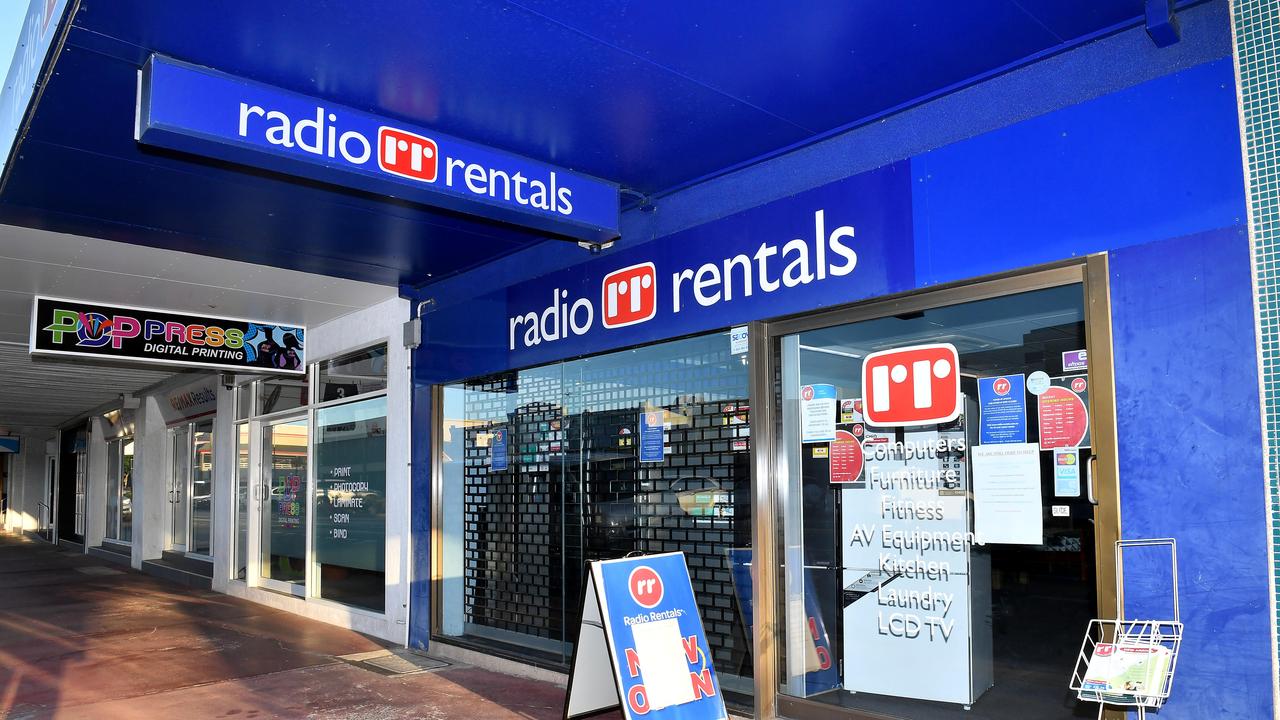
RETAILERS MAY REDUCE STORE NUMBERS OR GO ONLY ONLINE
Prof Mortimer said the pandemic had encouraged reluctant online shoppers to give it a go. Now they’d tried it, they might stick with it and head out to stores far less.
“For customers who had avoided online shopping it became a necessity and once you’ve set up that food and grocery order, you’re more likely to habitually reorder.”
Australia Post has said online orders are up 200 per cent in some categories.
Figures from comparison site Finder found online sales at Accent Group’s Athlete’s Foot brand had increased the most of traditional retailers.
Its sales had gone up 93 per cent online ahead of Big W with an 81 per cent up tick and appliance retailer Bing Lee on 80 per cent.
At 78 per cent and 67 per cent respectively, department stores David Jones and Myer had also seen a big increase in web sales. That’s particularly key for Myer which, unlike its rivals, temporarily shut all its stores in late March.
“COVID will accelerate the process for a number of brands to right size their store fleets. So, Myer might say it doesn’t need 90 stores anymore, that it can survive with 60 stores that are profitable,” Prof Mortimer said.
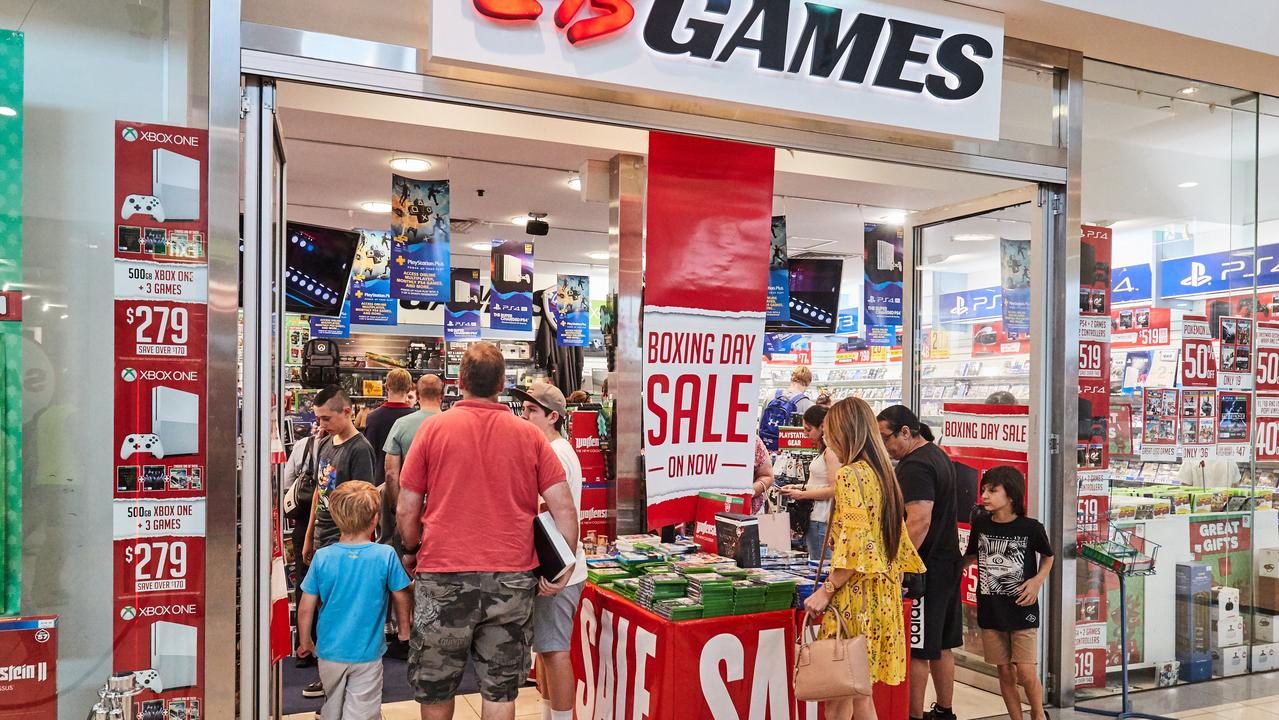
A sustained increase in revenue from online orders would make closing branches easier as it would make up for the last revenue from shuttered stores.
Some retailers could go even further, he said.
“Physical retail will never disappear because there is still a social element to it; apparel and footwear will never fully go online.
“But there may be some retailers, such as music stores and gaming retailers, which may never reopen. Here the product they sell can be sold just as well online.
“I buy all of my appliances from Appliances Online because you can do all the comparisons, the star energy ratings, and you just click and someone delivers and they have no physical stores.”
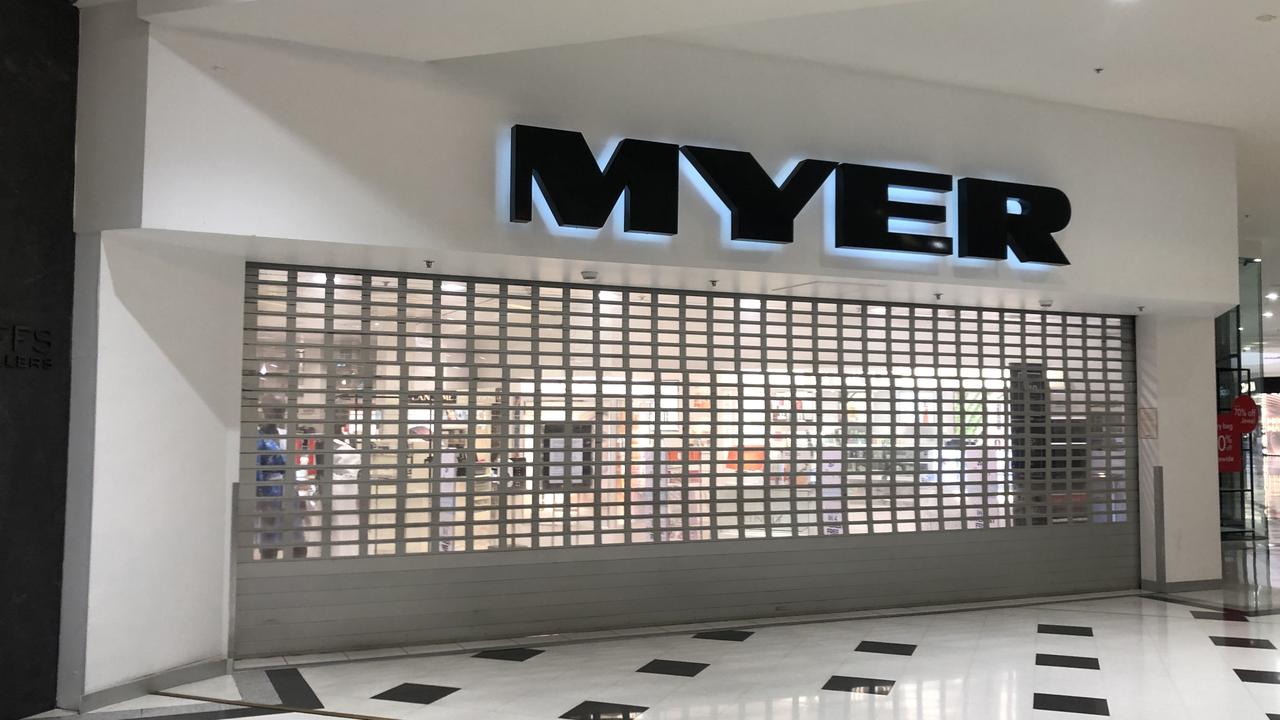
NAIL IN THE COFFIN
Inside Retail’s Ms Hui-Miller said just like in other industries – think airlines – coronavirus was picking off the weakest players and shaking up the market.
“Australia has long been one of the most over-shopped economies in the world, so it’s probably time to cut the fat from a lot of retailers,” she told news.com.au.
“Unfortunately, a lot of retailers were already struggling pre-coronavirus, so this could be the nail in the coffin for some.”
Nonetheless, Ms Hui-Miller said heading online provided “exciting opportunities” for shoppers and retailers.
But Prof Mortimer struck a note of caution – online was not an easy way to ride out COVID-19 and prosper at the other end.
“The challenge is online is costly. It’s far cheaper for a retailer if a customer visits the physical store, picks the product themselves and carries it home rather than you having to do all that for them.”
By far the biggest margin comes from bricks and mortar stores. That’s why even massive online operators like Woolies and Coles still charge a delivery fee to cover costs.
What a retailer might save on rent they could spend on having an efficient and attractive online presence.




